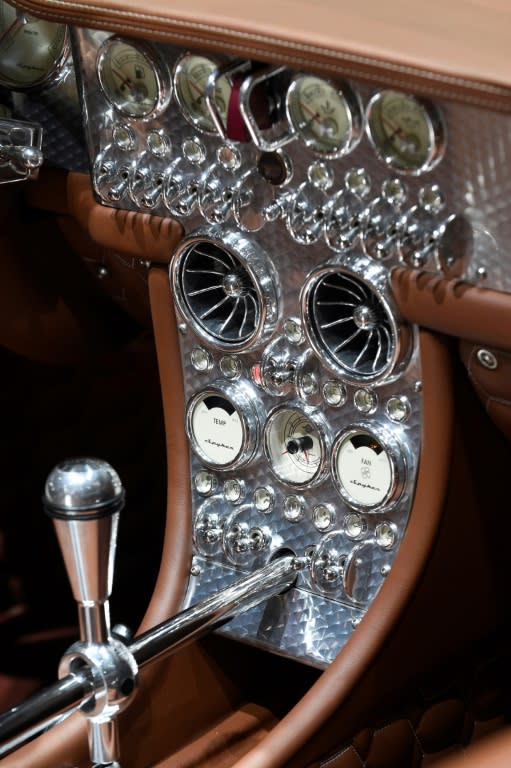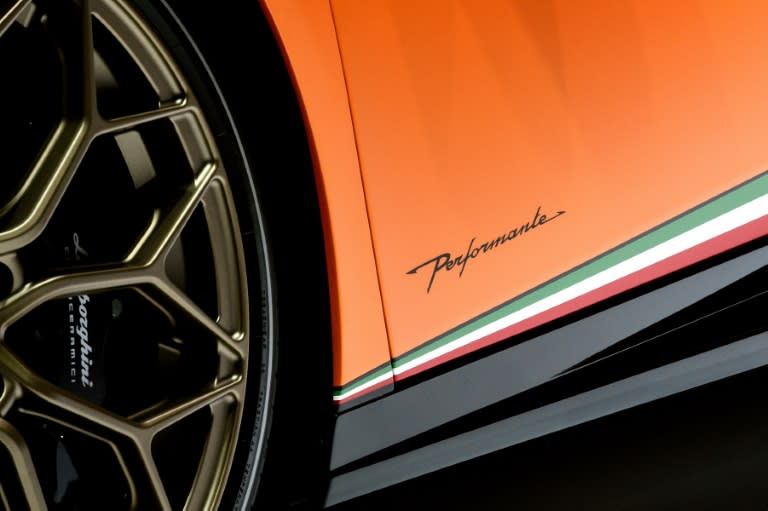Hum of optimism as Geneva car show hits the road
Gathered on the shores of Lake Geneva for Europe's biggest annual car show, leading automakers expressed cautious optimism on Tuesday about the industry's prospects for 2017, despite the climate of political uncertainty. Tens of thousands of people flocked to the Swiss city as the 87th Geneva International Motorshow opened its doors to experts and the media ahead of a public opening on Thursday. As the doors opened, the show was abuzz with talk of Peugeot-owner PSA's acquisition of Opel, the European subsidiary of General Motors, a 1.3-billion-euro ($1.4 billion) deal that will create the continent's second-biggest carmaker. With European sales almost back to levels last seen in 2008, carmakers are celebrating the end of a crisis which saw the global financial meltdown inflict deep dents on the industry. Despite a wave of political uncertainty and the persistent shadow of the 2015 emissions scandal, executives were largely upbeat about the prospects for the coming year. "What we see in 2017 is a market which is more stable, with slight growth, it's a situation which suits us just fine," PSA chief executive Carlos Tavares told AFP a day after signing the deal which saw the French auto giant resuming its position as Europe's largest carmaker after Volkswagen. "What is important is to preserve the profitability of the business... to be in a situation in which we can absorb any fluctuations in the market," he said, adding: "For the moment, we don't see any." Juergen Stackmann, head of VW brand sales, had a similar outlook. "We are expecting a stable European market this year, in all likelihood with regional challenges," he said, in a nod toward the uncertainty over the impact of Britain's vote to leave the EU. - In good spirits - GM's sale of its European brands comes at a time of political upheaval following Donald Trump's arrival in the White House, and key elections due in Germany, France and The Netherlands, with the uncertainty potentially crimping growth and consumer confidence. But Fiat Chrysler chief Sergio Marchionne urged the industry to keep things in perspective. "To describe the Old Continent as offering geopolitical risk to a multinational, I think we're stretching (it) a little bit out of proportion," he said in a veiled reference to GM's justification for exiting Europe. But Toyota's European president and CEO Johan van Zyl took a more sober outlook. "We are facing many factors of uncertainty on the European market... which are going to have a negative effect," he predicted, with figures released by the European Automobile Manufacturers' Association (ACEA) suggesting growth in the sector will be almost flat this year at just one percent. Leading carmakers, however, appeared to be in good spirits after a year in which 14.64 million vehicles were sold within the EU, a 6.8 percent increase from the previous year. - Glitz and glamour - It is a far cry from last year's show, when the industry was under a cloud following Volkswagen's admission it had installed software in 11 million diesel engines worldwide to circumvent emissions tests, a scandal that is set to cost it billions in fines and compensation. The scandal has focused attention on emissions and the challenges facing automakers in building cars to meet ever-tougher pollution rules. Carmakers are now having to steer toward engines that emit no more than 95 grams of carbon dioxide per kilometre by 2021 to meet European requirements, compared with 130 grams in 2015. But even with the greater emphasis on fuel economy, the Geneva show is unlikely to disappoint in terms of glitz and glamour, with Ferrari, Lamborghini, McLaren and Bentley all set to present new models. But the greatest buzz may come from so-called "crossover" vehicles, or CUVs, which combine features of sport utility vehicles (SUVs) with those of passenger cars. Some 180 companies are present at the 10-day show, which last year attracted 687,000 visitors.





